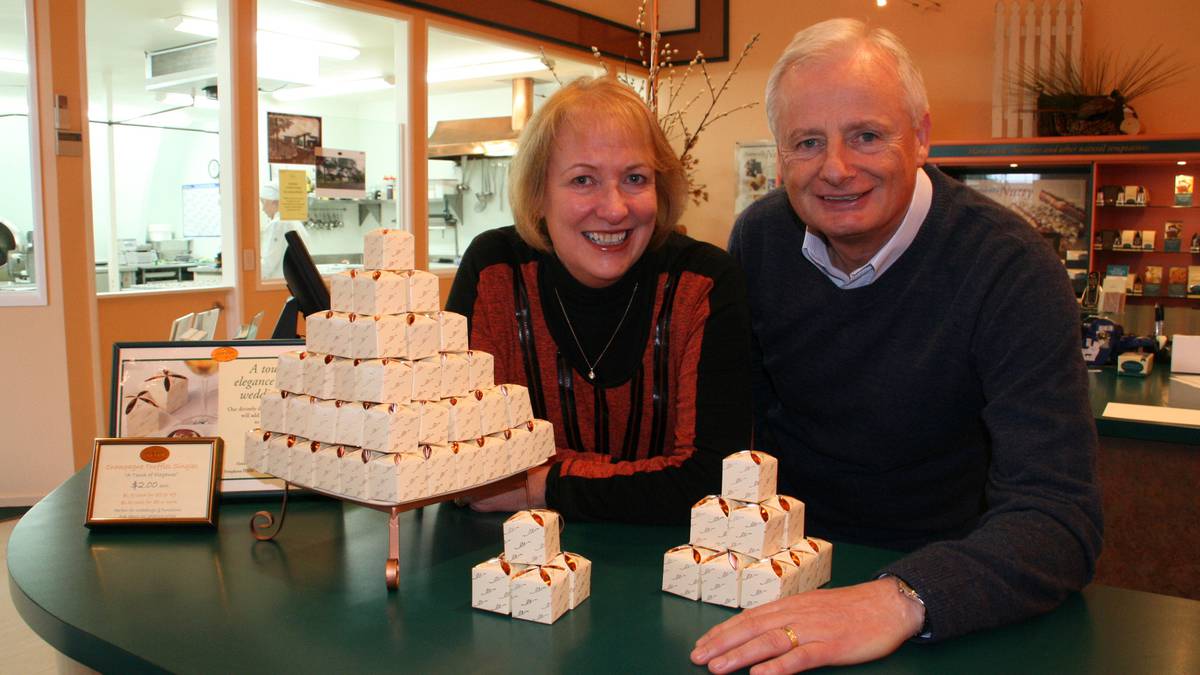Makana Confections Kerikeri owner Brian Devlin and his wife Carole Flowers, had to close the popular Makana café in December due to staff shortages. Photo / file
Staff shortages are putting Northland business owners under the pump, with the issue overtaking Covid-19 as the top reason they’re losing sleep at night.
Business experts are now urging bosses to look for ways they
can value and retain their workers as the cost of losing them becomes unbearable.
Bay of Islands-based business coach Sarah Greener said staffing shortages were “a theme across the country and were a major problem”.
Greener, who has clients in New Zealand, Australia and the United States, said the issue was across all sectors, particularly hospitality and tourism.
“People in hospitality and tourism just cannot get to the people, there’s just not the staff out there for the roles.
“They’re looking down the barrel of a summer where they can’t fill the roles.”
Many shops and restaurants were having to shorten their opening hours as a result of staffing shortages, combined with higher sick leave due to Covid-19, flus and stomach bugs, she said.
“There’s not the flexibility in the system anymore, everything has been used up.”
Greener’s advice for business owners is to show they value their current staff.
“If you’ve got great team members, talk to them about their goals and support them.
/cloudfront-ap-southeast-2.images.arcpublishing.com/nzme/VYTRYCTOZNEQ7JEZQPZRGJIOBA.jpg)
Owner of Ake Ake restaurant in Kerikeri, Judy Owen, said she was finding staff and supply shortages tricky at present.
“You can’t find anyone, there’s such a lack of staff up here.
“It’s okay when the uni kids come back but otherwise it’s very difficult to get people.”
There was also starting to be a shortage of supplies, Owen said.
“I hear [my husband] Chris grumbling we can’t get certain things, and the prices have gone up so much.
“The government is killing small business really.
“They don’t give you any tax breaks. Even with the Covid resurgence support payment, you’re still taxed on that.”
Makana Confections Kerikeri owner Brian Devlin said his biggest concern was also finding staff, something which was “a national problem”.
The popular Makana Café was closed in December because they couldn’t recruit enough staff ahead of the busy school holiday period, he said.
“We realised we wouldn’t have enough staff to handle the business so rather than offer customers poor service and put a strain on the staff we had, we decided to close.
“The few staff we had in the café we re-employed in the factory.”
Devlin said the adjoining boutique chocolate factory was still doing well.
“Whenever money gets tight, and we saw this in the 2007/2008 recession, people will still buy the feel-good items like chocolate or maybe a bottle of wine.
“The same thing happened during the second World War.
“It was called the ‘lipstick effect’, if you couldn’t buy something expensive you could still get a bit of makeup on and make yourself feel better.”
/cloudfront-ap-southeast-2.images.arcpublishing.com/nzme/72II4JSDVZSZAV55GYVJZVSFKU.jpg)
According to business consultancy firm Business Changing’s State of the Nation survey, carried out in the first half of July, small and medium-sized businesses are feeling the pinch of a tight labour market and immigration policy.
Adequate staffing is the biggest issue they are facing right now, with the survey of 200 business owners finding for every 12 employees they have, they have one job vacancy.
Almost 70 per cent of business owners surveyed said they had no confidence in the current Government and its ability to steer the country through the economic downturn.
Surprisingly, Covid-19 was found to be the least of business owners’ worries – with 70 per cent stating that they were not concerned about the ongoing impact of Covid on their business.
NorthChamber chief executive Steve Smith said Covid was now “in the background to an extent”.
“Covid has been here a few years now, it’s not forgotten, but the effects on a daily basis is about managing your team. It’s how do you manage the efficiency of your business without a full team”.
Most business owners were more concerned about a drop in spending “which seems to be settling in for the winter”, Smith said.
Then there is capitalisation and inflation, including the ongoing high price of fuel, he said.
/cloudfront-ap-southeast-2.images.arcpublishing.com/nzme/NQ2PJTYGIQYSDRKEH7OPQ6INLM.jpg)
But one sector remains optimistic.
Tourism Industry Aotearoa [TIA] reckons a “tourism revival” could fend off New Zealand’s recession with the right people in place, as New Zealand’s borders opened to all visa categories last night.
A recent survey by TIA found 75 per cent of tourism businesses are currently recruiting, and 58 per cent of roles on offer are full-time positions.
“This bodes well for a strong start if we can get the right people in the right roles – and we are working hard to find them,” TIA chief executive Rebecca Ingram said.
“The full reopening of our borders this week will be momentous for Aotearoa New Zealand and it is exciting to reach this stage.”
From 11:59pm on July 31, all visa categories including tourist, visitor and student visas will reopen for applications for travellers from anywhere in the world.
Cruise ships can also enter New Zealand from this date.




